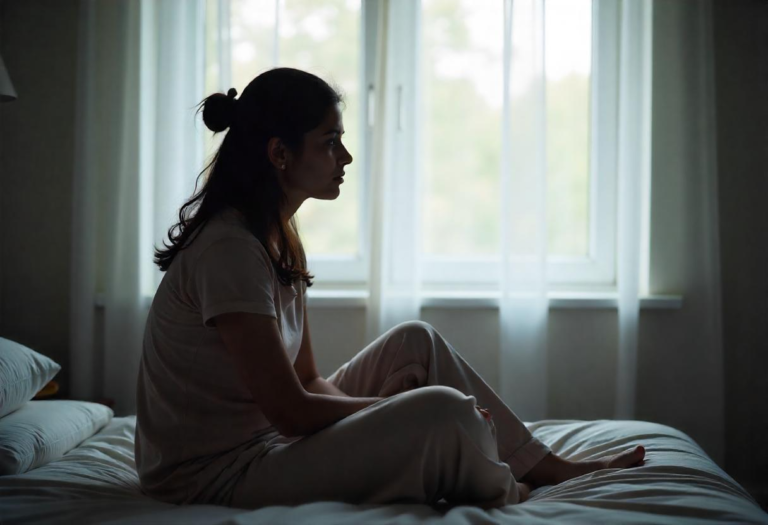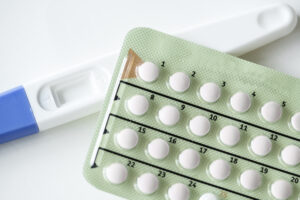Have You Been Told You’re “Too Young” for Menopause? Think Again.
If your periods have stopped unexpectedly, or if you’re struggling with infertility at a young age, you might be experiencing Primary Ovarian Insufficiency (POI)—a condition where the ovaries stop functioning normally before the age of 40. Many Indian women go undiagnosed because POI is often mistaken for stress, PCOS, or early menopause.
Let’s break down what POI is, how it affects your health, and when to seek help.
What Is Primary Ovarian Insufficiency?
POI occurs when your ovaries stop producing enough estrogen and fail to release eggs regularly, leading to irregular or absent periods. Unlike menopause, where ovarian function stops completely, POI can be unpredictable – some women still ovulate occasionally, but conception is difficult.
What Are the Symptoms of POI?
Since POI mimics other hormonal disorders, it’s often ignored or misdiagnosed. Look out for these symptoms:
- Irregular or missed periods (the most common sign)
- Infertility or difficulty conceiving
- Hot flashes and night sweats
- Low libido and vaginal dryness
- Mood swings, anxiety, or depression
- Brain fog and difficulty concentrating
- Osteoporosis or frequent fractures (due to low estrogen levels)
If you have these symptoms, especially irregular periods, consult a doctor—ignoring POI can lead to long-term health complications.
What Causes POI?
POI has multiple causes, but in many cases, the exact reason is unknown. Here are some possible triggers:
- Genetic factors – If your mother or sister experienced early menopause, your risk is higher.
- Autoimmune disorders – Conditions like Hashimoto’s thyroiditis or lupus can attack ovarian tissue.
- Chemotherapy or radiation therapy – Cancer treatments can damage ovarian function.
- Infections – Some viral infections (like mumps) can affect ovarian health.
- Chromosomal abnormalities – Conditions like Turner Syndrome or Fragile X Syndrome may lead to POI.
- Environmental toxins – Exposure to cigarette smoke, pesticides, or heavy metals may contribute to ovarian failure.
How Common Is POI in India?
Studies suggest that around 1 in 100 women under 40 and 1 in 1,000 women under 30 are affected by POI globally. However, due to a lack of awareness and cultural stigmas around reproductive health, many Indian women remain undiagnosed. It’s time to change that.
Myths About POI—Busted!
• Myth: “POI means you can never get pregnant.”
• Fact: While POI significantly reduces fertility, spontaneous ovulation can still occur. Some women conceive naturally, while others may need fertility treatments.
• Myth: “It’s just stress—your periods will come back.”
• Fact: While stress can impact your cycle, persistent irregular periods need medical evaluation.
• Myth: “HRT (Hormone Replacement Therapy) is unsafe and unnecessary.”
• Fact: Estrogen therapy is often recommended for POI to prevent osteoporosis and heart disease, under proper medical guidance.
When to See a Doctor
If your periods have stopped for more than three months, or if you have difficulty conceiving, it’s crucial to consult a gynaecologist or endocrinologist. A few simple tests—like hormone blood tests and ultrasounds—can diagnose POI.
Ignoring POI can increase the risk of osteoporosis, heart disease, and mental health concerns due to prolonged estrogen deficiency.
Get the answers you deserve. Book a confidential consultation with our experts today.
How to Manage POI?
While POI can’t be reversed, managing the condition can improve your quality of life:
- Hormone Replacement Therapy (HRT): Helps balance estrogen levels and prevents complications like osteoporosis.
- Calcium & Vitamin D Supplements: Supports bone health and reduces fracture risk.
- Lifestyle Changes: Regular exercise, a balanced diet, and stress management can help improve symptoms.
- Fertility Treatments: IVF with donor eggs or experimental treatments like ovarian rejuvenation may be options.
Take Charge of Your Health Today
If you’ve been dismissed, ignored, or told “it’s just stress,” don’t settle for vague answers.
Your health. Your choice. Ready to take the first step? Book an expert consultation today.
References:
- https://www.acog.org/clinical/clinical-guidance/committee-opinion/articles/2014/07/primary-ovarian-insufficiency-in-adolescents-and-young-women
- https://www.mayoclinic.org/diseases-conditions/premature-ovarian-failure/symptoms-causes/syc-2035463
- https://www.nichd.nih.gov/health/topics/poi
- https://indianmenopausesociety.org/



